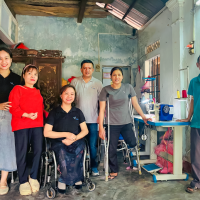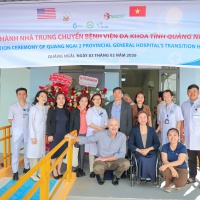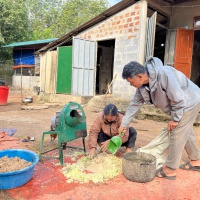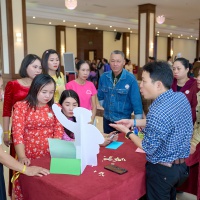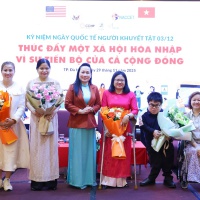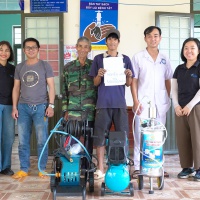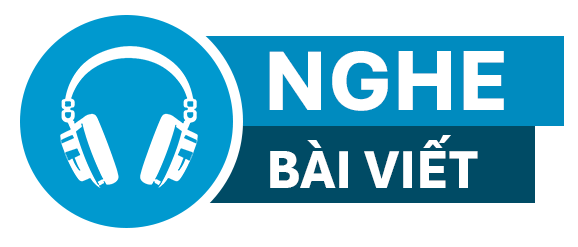
On September 13–14, 2025, the Action to the Community Development Institute (ACDC), in collaboration with the health stations of Phu Bai, Huong Thuy, Thanh Thuy wards, and project partners in Hue City, organized a training session on caregiving skills for caregivers of persons with disabilities.
The training brought together 48 participants, who are family members directly taking care of persons with disabilities currently receiving home-based interventions from ACDC. This activity is part of the home-based healthcare support program for persons with disabilities under the project “Improving the quality of life of persons with disabilities in provinces sprayed with Agent Orange.”
Most caregivers have some basic experience but still face many challenges in taking proper and safe care. Results from home screenings and interventions have also shown that persons with disabilities often struggle with issues such as nutrition, respiratory care, sleep, pressure ulcer prevention, medication use, personal hygiene, fall prevention, and special care needs for epilepsy, etc.... Based on this, ACDC and a team of training of trainers who are also medical staff directly involved in interventions developed a suitable training program and materials.
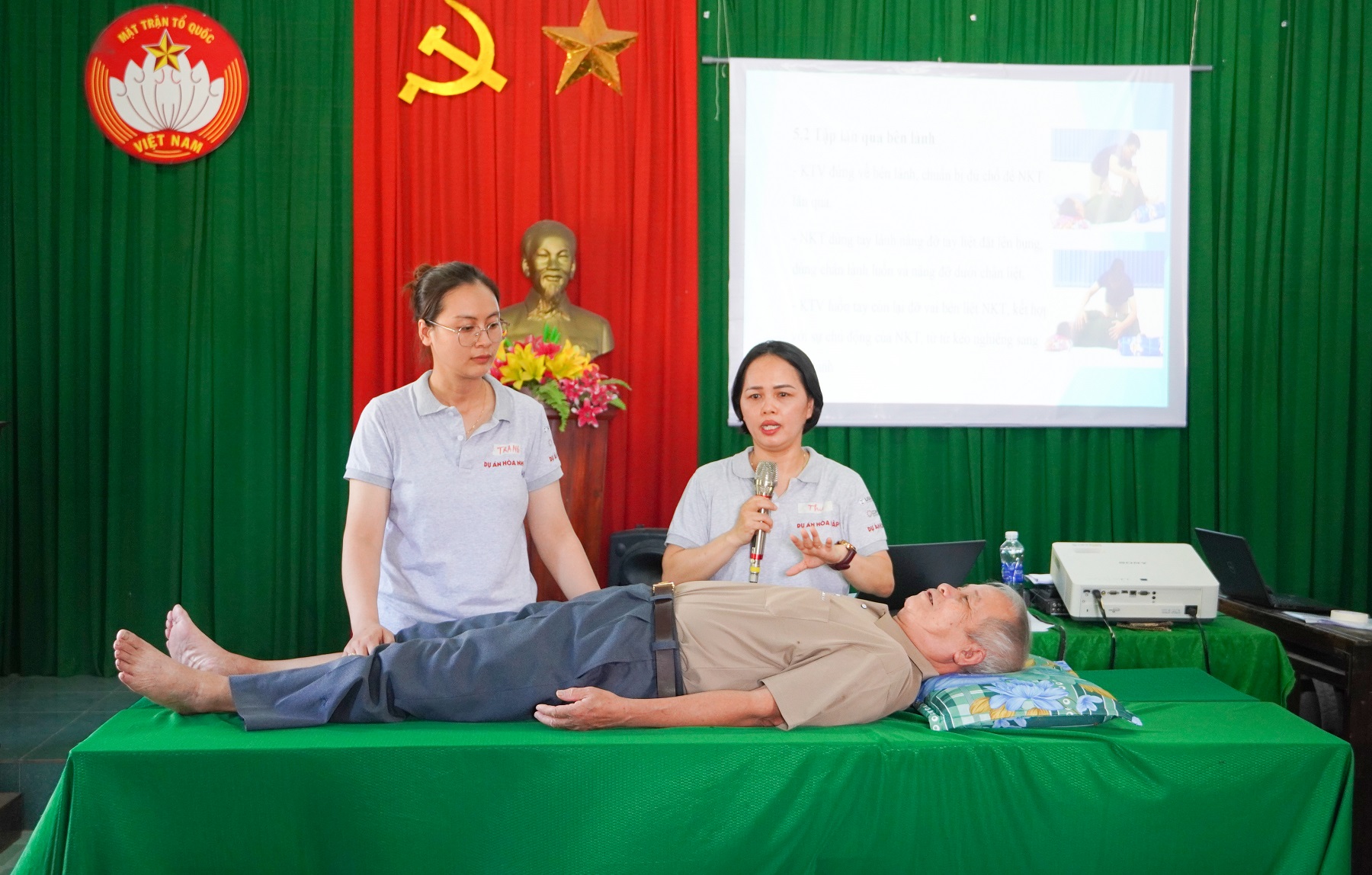
The group of lecturers explained and provided practical instruction on caregiving skills for persons with disabilities
During the training, besides common methods such as presentations, videos, pictures, and handouts, trainers also used interactive approaches like group discussions, “problem tree” analysis for identifying causes and solutions, hands-on practice based on real-life experiences, group and individual feedback, and direct observation at patients’ homes. These methods made the sessions lively and encouraged participants to actively share and learn from one another.
Evaluation results after the training showed that participants gained more accurate and complete knowledge of home-based caregiving skills for persons with disabilities. Not only do the persons with disabilities benefit, but caregivers themselves also learn how to practice and accompany their loved ones in daily care.
Some reflections from participants:
Ms. N.T.H, caregiver of a person with disability in Thanh Thuy ward, shared: “After joining the caregiving class, I found it very interesting and useful. It helped me gain more knowledge and skills to care for persons with disabilities and to share with others. Before this, I mostly took care of my family members by instinct, and it wasn’t very thorough. After being guided, I now know better ways to take care and do it more effectively.”
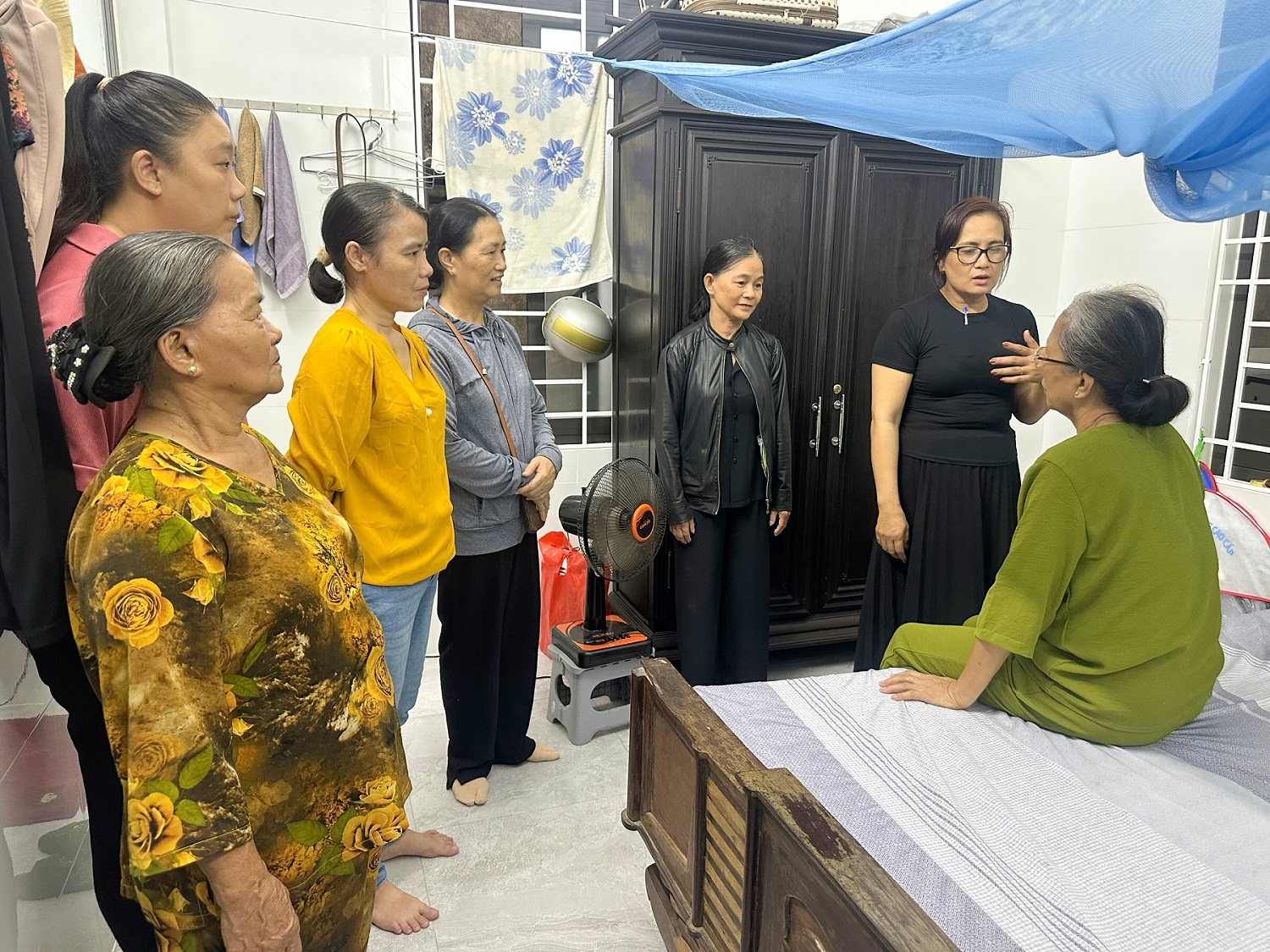
The trainees had the opportunity to participate in practical activities on home-based care for persons with disabilities under the guidance of the instructors
Ms. T.T.C.T, caregiver from Phu Bai ward, said: “The lessons today are truly valuable-something you can’t just pay to learn. There’s a lot of information on the internet or in books, but it’s hard to grasp everything. Here, the trainers guided us based on the real situations of our family members, giving advice we can actually apply at home. I hope the project can expand this model so that more persons with disabilities and their families can benefit.”
Ms. H.T.B.C, a trainer at Thanh Thuy ward, shared: “I feel that this caregiving training is deeply meaningful. The sessions are not just about delivering knowledge, but also about practicing hands-on caregiving skills, sharing, and exchanging experiences, as well as the emotions and difficulties of caregivers. From this, I also learned a lot of practical experiences through their stories about caring for loved ones at home.”
The project hopes that these skills will be applied by caregivers, alongside health workers, to better protect the health of persons with disabilities-helping them stay safe, healthy, and able to participate in social and community activities.
